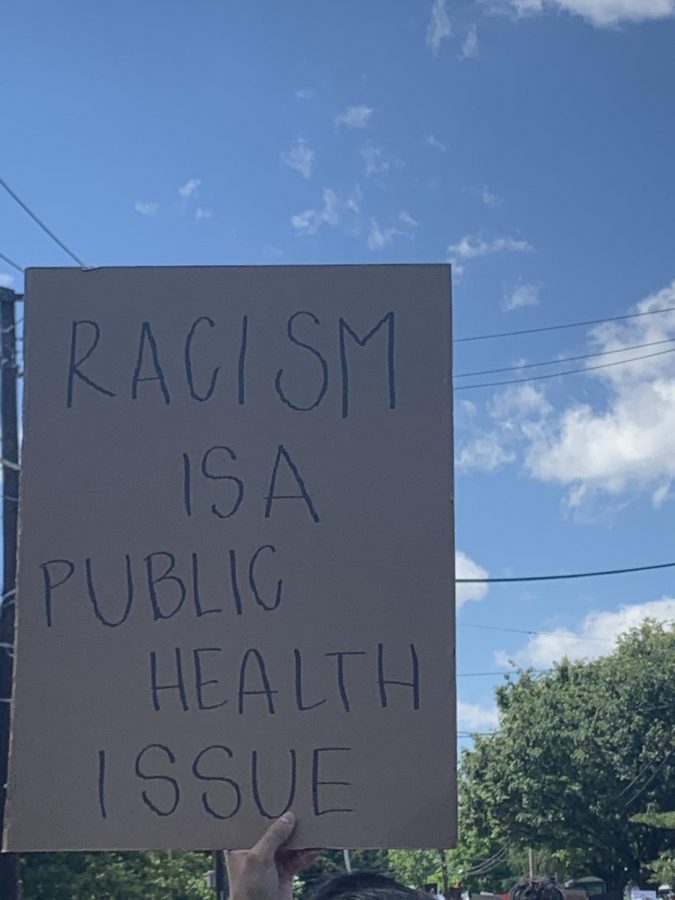Why student activism is so important
Student activism is a right and a privilege at Montgomery County protest.
With a surge of activism across the country, it’s important that students participate in the conversation and fight for what they believe in.
Youth-led activism is not some new concept that’s just trendy. Student-led activism has always been a crucial part of history. Prime examples include the Civil Rights movements and the protest against the Vietnam War. Activism is the effort to reform an issue that pushes society towards the greater good. Students have always had a presence, but the only major difference being their access to technology.
Many, if not all, issues significantly impact our way of living, yet most teenagers choose to believe that we can’t make an impact because we can’t vote. This train of thought shouldn’t be the norm, and it shows that the education system doesn’t teach students about proper civic engagement. U.S. Civil Rights Leader John Lewis said, “Politics control everything that we do in America, from the time that we’re born until the time we die. So you have a moral obligation, a mandate to push and get out there and do everything you can to leave this little piece of real estate we call America a little greener, a little cleaner, and a little more peaceful for generations yet unborn.”
Older people expect young people to lack response and negligence toward real issues. Therefore, older generations petition to the government to pass policies that shape our lives without acknowledging the consequences young people would have to face. And they will continue to do so unless we do something about it. Our voices will not be silenced. A single voice could mean the difference between a revolution happening, or losing all meaning.
Students help construct narratives that others haven’t seen before. Having students constantly embrace and spread awareness about an issue allows everyone to know that this problem isn’t just impacting current adults, but future generations.
Not only is student activism a meaningful contribution to society, but it’s a great way to stay connected and up to date. Activism helps develop communication, connections, relationship building, and critical thinking skills. Civic engagement is always a good thing to practice and is essential for life.
Even just simply using your platform (like social media) to speak your mind can make a major contribution to the ongoing change we’re seeing in this country. Especially during the pandemic, there are many other ways to be a student activist: posting on social media, signing petitions, or even just educating your friends. Being an activist doesn’t just mean protesting, but educating your audience on issues and elevating the voices of the underrepresented.
The important thing to remember is that change isn’t always instantaneous. Progress is slow. But, what makes young people so strong and resilient is the power in numbers. Having conversations with people brings attention to an issue, and spreading the word is what makes change happen. Even just one person’s words backed by many people shows that people are paying attention.
It’s not that activism among students has stopped, it just has not been visible. The impact students had will never be forgotten, and we cannot stop now.
Your donation will support the student journalists of Watkins Mill High School. Your contribution will allow us to purchase equipment and cover our annual website hosting costs.
Josh is a Senior at Watkins Mill High School and Associate Editor for the Current. He listens to My Bloody Valentine and PinkPantheress’ entire discography...
Luke Swander is a senior at Watkins Mill High School. He is the Business Manager and Features Managing Editor for the Current. He is on the Watkins Mill...









